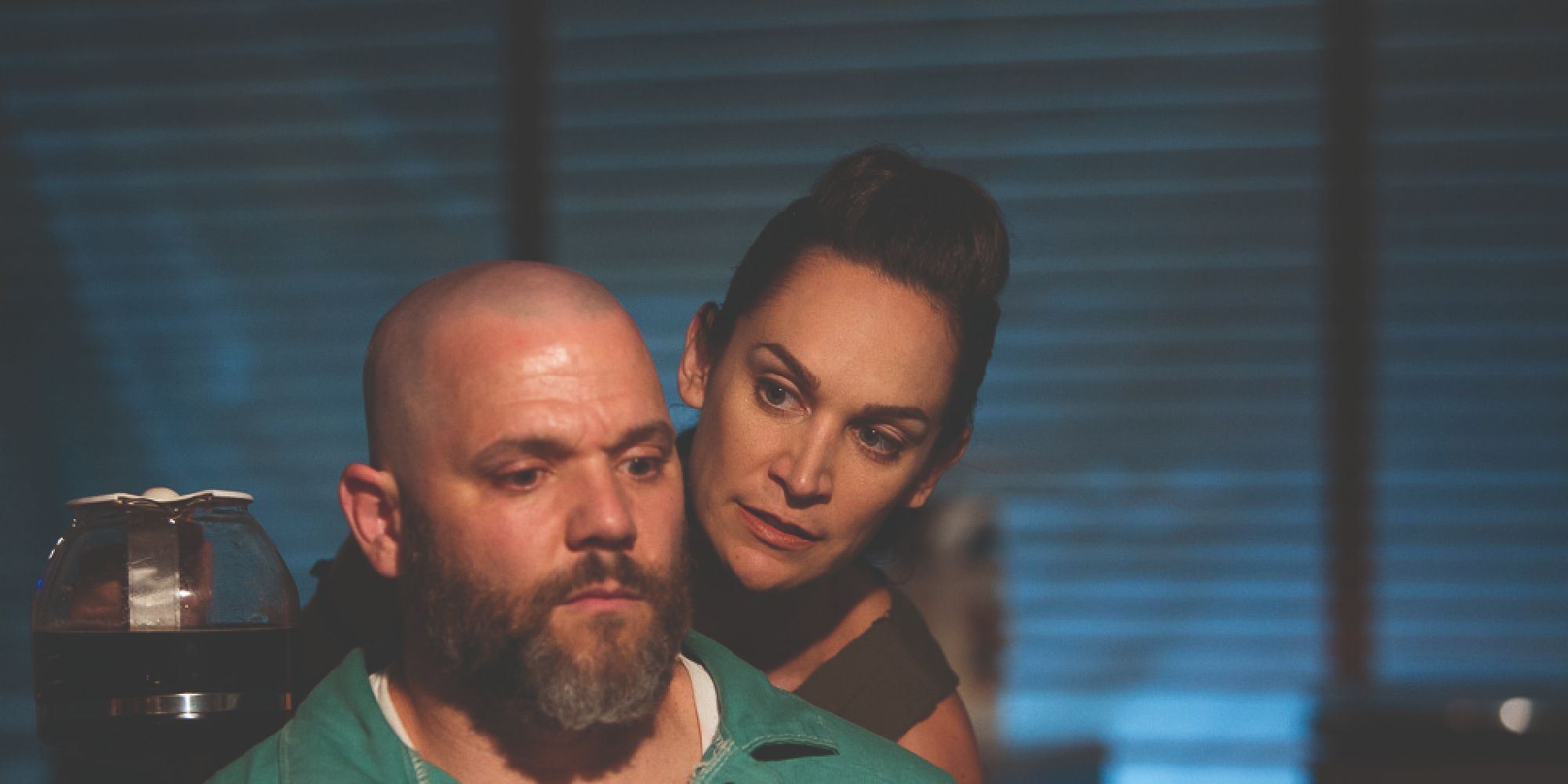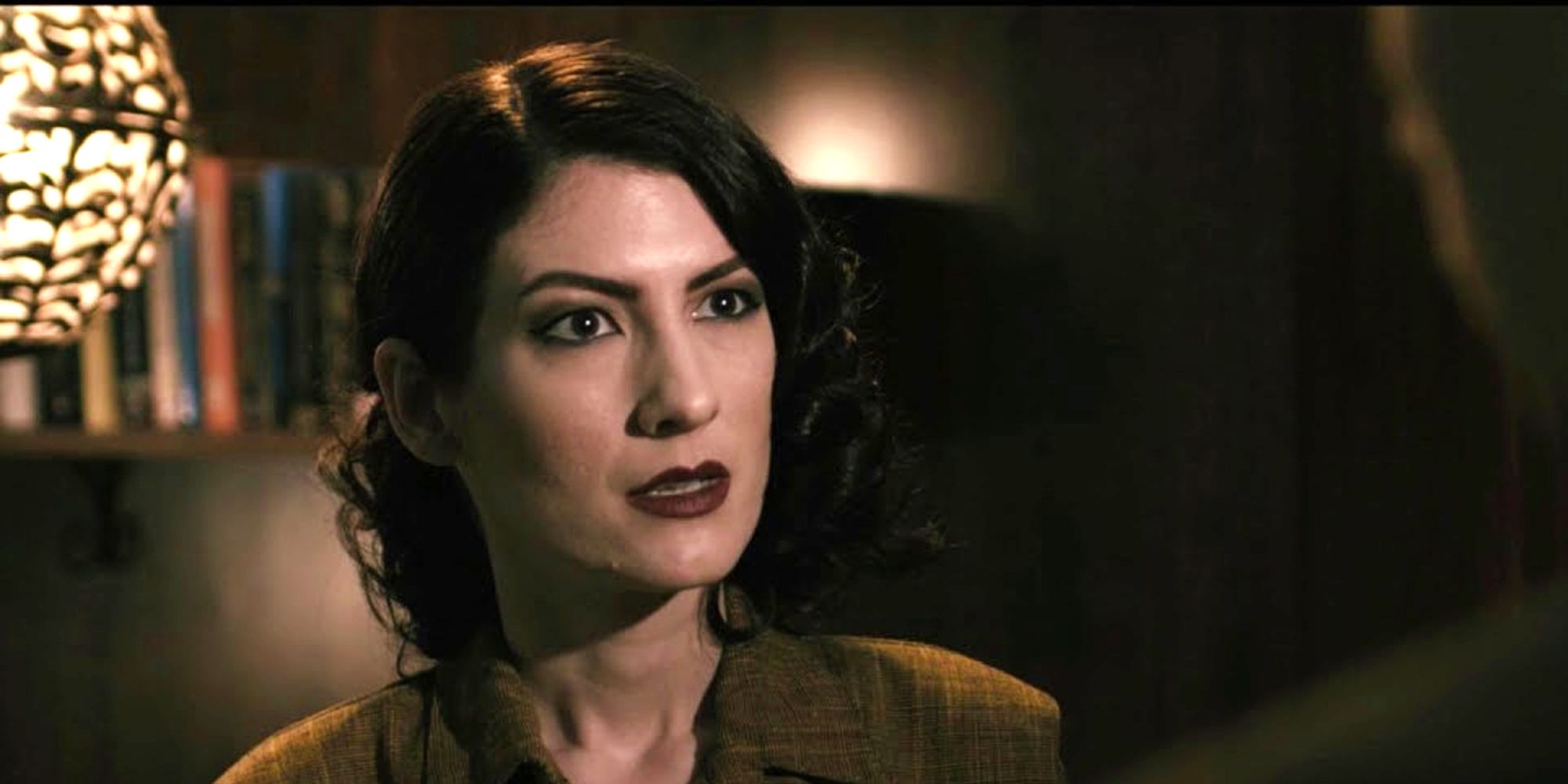While the world is no stranger to dystopian narratives in cinema, few have been able to emerge as ingenious, well-sustained pieces that delve deep into what it means to be human in a tech-saturated world. Compelling techno-noir pieces such as Blade Runner and Gattaca come to mind, mainly due to the fact such films allow audiences a peek into immersive, near-future scenarios that amplify the resident darkness embedded within the human condition. Writer-director Christopher Soren Kelly’s The Tangle is a commendable addition to the list, as it manages to weave an intricate web of mystery and intrigue while encouraging captivating discourses that constitute the very fabric of science fiction. Rooting itself in nuanced tech-noir, The Tangle unfolds into breathtaking lyrical poetry about human ambition and “the caverns measureless to man.”
The Tangle opens with a world completely connected by the eponymous airborne nanotech, embedded within the blood and sinews of every human being. The S.O.L or Secure OnTangle Line is posited as a quantum-encrypted hard drive implanted within the human mind, designed to facilitate heavily-customized personal spaces, stop crime altogether, and eliminate human needs that can prove to be fatal when not quenched, such as thirst. Tied to a single consciousness, namely the elusive Cleopatra or Cleo (Bel Deliá), the Tangle is deemed unhackable by any other entity, marking the achievement of technological singularity. However, the seemingly-idyllic world of The Tangle is disrupted when a government ASP agent, Margot (Mary Jane Wells) is brutally murdered inside an abandoned speakeasy. When Carter Carmine (Joshua Bitton) finds himself a prime suspect of the murder investigation, two ASP agents, Edward (Soren Kelly) and Laurel (Jessica Graham) interrogate Carter about his exact whereabouts before the murder. Thanks to the Tangle, the ASP agents are able to retrace back Carter’s steps with hyper-accurate precision, even after his S.O.L is removed from his cranium.
As the trio engages in a frenetic back-and-forth, the audience is alerted to the room’s pre-technological setting, seemingly removed from the Tangle’s pervasive presence in the world outside. Featuring an antique typewriter and an old rotary phone, the safe room’s “pre-singularity” setting offers a stark contrast to the hyper-connected web of the Tangle, which allows individuals to don avatars and “count the moles on the back of a Sherpa on Everest” from their living spaces. Amid this privacy-defunct and instantly-searchable world, the ASP safe room unravels a string of well-kept secrets, such as the fact that the ASP exists as an extra layer of surveillance to monitor the Tangle, and that all ASP agents voluntarily opted out of the network in order to do so. As the Tangle has seemingly achieved the pinnacle of technological marvel, with the ability to deter reflexes that could purportedly lead to crimes and murder, how did Margot end up with her head bashed in?
This question dominates the central mystery of The Tangle, which further branches into deeply philosophical arenas that haunt the human psyche. How does love factor into a microdrone-addled world, and what happens when human ambition aims to usurp an omniscient tech-ecosystem? Poetry is seated at the heart of The Tangle, as it assumes central importance in terms of the murder in question and the motivational conflicts between the characters. Samuel Taylor Coleridge’s “Kubla Khan” is key to unraveling the veil of truth, which emerges as a fitting metaphor for evoking the loss of a primordial world of fantasy and wonder:
“In Xanadu did Kubla Khan/A stately pleasure-dome decree:/Where Alph, the sacred river, ran/Through caverns measureless to man/Down to a sunless sea.”
Then there is Carter’s own poetry, which bleeds beautifully into his creations, his technological prowess, and his overwhelming humanity when it comes to protecting the one he loves. As per performances, the entire cast belts out convincing character studies, with Bitton and Graham emerging as near-sublime. Soren Kelly plays Edward with the precision of a hardboiled detective warring with his inner demons, hiding a kernel of intensity beneath his otherwise cold, collected exterior. The deft unraveling of the characters’ inner worlds is probably one of the film’s greatest strengths, as it is masterfully done with the aid of tautly-edited flashbacks and nuanced performances that brim with haunting pathos.
Although most of the narrative events of The Tangle take place within a single room, the occasional cuts to the outside world are visually-stunning, to say the least. One of the film’s central mysteries, Cleo, is never featured onscreen, which adds to the aura of doubt and mystery that surrounds her real motivations. Moreover, The Tangle ends on an impactful note without proffering a conclusive resolution, leaving the fates of the characters up in the air, opening the vistas of interpretative analysis and dialogue. The intrinsically Greek idea of “beauty is terror” echoes throughout the tech-saturated vistas of The Tangle, revealing the often-distorted self-reflections that blur the line between self-interest and profundity. What remains is a fragment, a vision in a dream.
The Tangle was released March 19, 2021 in the U.S. and is available for online streaming, courtesy of Indie Rights. It is 99 minutes long and remains unrated as of now.
Let us know what you thought of the film in the comments!



